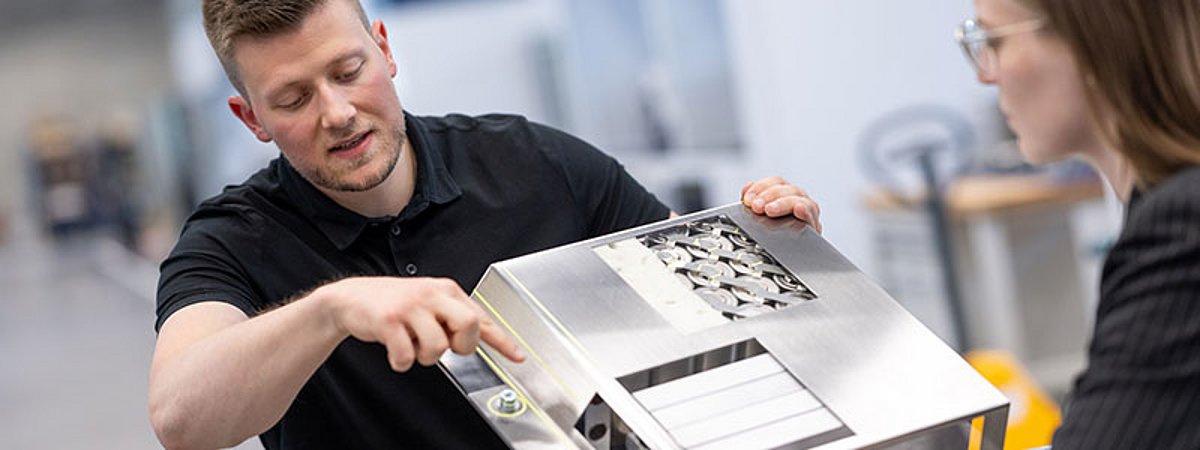Trumpf enables recycling of batteries with laser technology

Trumpf has developed an efficient laser process for recycling electric car batteries. This allows the wafer-thin layer of the coated foil strips containing valuable materials such as cobalt and nickel to be removed and processed for new coatings.
Car manufacturers and battery producers can now recycle used or faulty batteries from electric cars on an industrial scale for the first time using laser technology from Trumpf. The high-tech company develops laser systems that safely cut open used batteries and remove the valuable raw materials from the battery foil. "Recycling batteries makes ecological sense and is now also economically viable thanks to laser technology. Trumpf can draw on extensive expertise in laser welding and cutting for the production of e-car batteries. We have been working with all leading car and battery manufacturers for years. We have incorporated this experience into the development of the new processes," says Hagen Zimer, CEO Laser Technology at Trumpf. The high-tech company is presenting the new laser processes for the first time at the leading trade fair for battery technology, Battery Show Europe 2024 in Stuttgart.
The electrodes for new battery cells are produced as foil strips coated with valuable materials such as cobalt and nickel. In a future recycling plant, laser processes will be able to remove the wafer-thin layer from the foil. Manufacturers will be able to collect the valuable dust and process it for new coatings. Until now, it was not uncommon for kilometers of coated film to end up as waste. Laser technology can also be used to recycle battery packs in the future. Only laser technology enables efficient and automated dismantling, for example to remove covers from batteries or to cut off cables. The raw materials can then be sorted and battery cells that are still usable can be directly separated and recycled. Until now, the dismantling of electric car batteries has been manual work. This is time-consuming, slow and sometimes dangerous for the workers.
